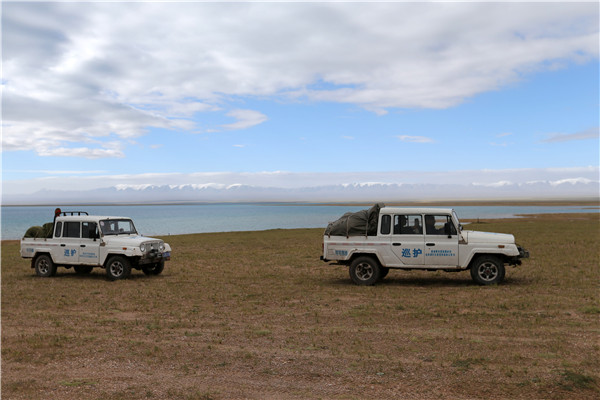The people who protect the plateau know high risks and rewards
 |
|
Two police vehicles patrol in Hoh Xil. [Photo by Wang Zhuangfei/China Daily] |
"I've broken up with several girlfriends because I have no time to be with them," he says.
"I'm single. I seldom return home. My parents sometimes ask why I can't visit. I feel sorry for them."
Hoh Xil's ecosystem isn't only delicate but also significant.
It's the source of the Yangzte, Yellow and Mekong rivers.
And a third of the plant species and all herbivores are endemic, UNESCO reports.
But it's not only conservation law enforcement that protects the plateau.
A growing number of volunteers from around the country are moving into the area and living in the stations where they work.
He Kai relocated from Guangdong province's Shenzhen to the Qinghai-Tibet Green Station while between jobs.
The IT worker saw a protection station when sightseeing in the Hoh Xil's in 2014.
"A sense of responsibility compelled me to switch roles between tourist and environmental-protection volunteer," he says.
The station's main function is to retrieve and sort trash that travelers discard along the Qinghai-Tibet Highway.
"I need to educate tourists against littering and awaken environmental awareness," he says.
Gagyer Tudam Damba runs the station.














